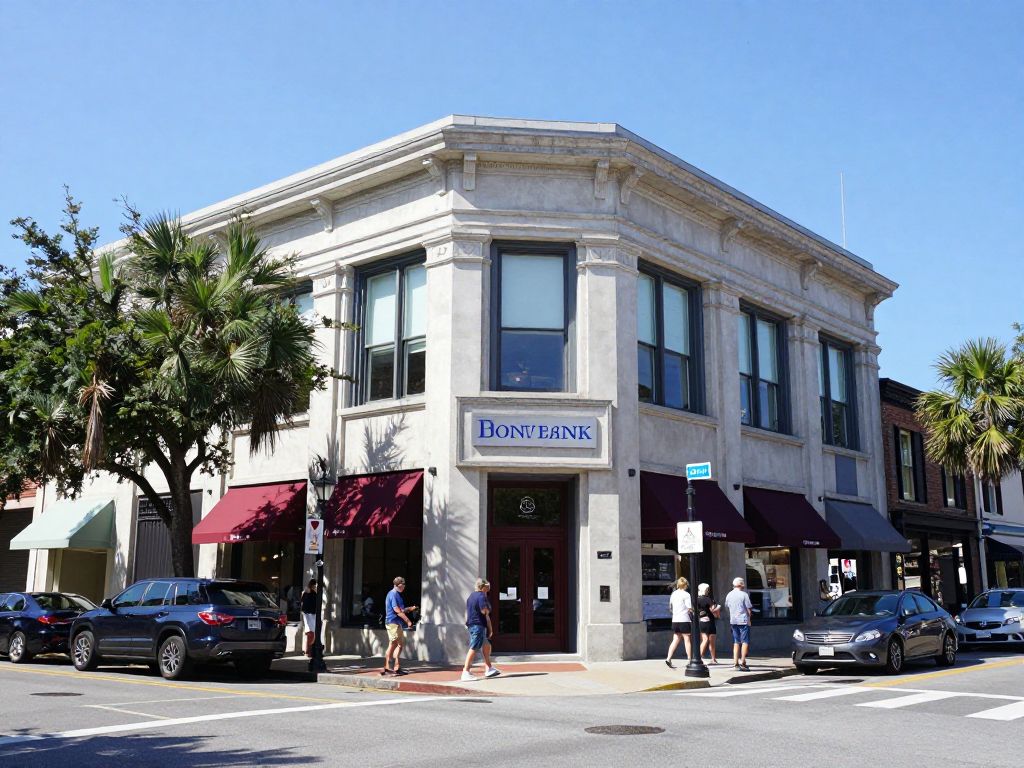News Summary
South Carolina’s Chief Justice John W. Kittredge has initiated significant reforms aimed at reducing the backlog of cases in Charleston County and enhancing the efficiency of the judicial system. With a focus on consensus building and transparency, Kittredge’s efforts have resulted in the swift resolution of bond-related motions and plans to address older cases. Additional resources for family courts and public transparency measures are vital components of his strategy to improve public confidence in the judiciary.
South Carolina Courts Get a Fresh Start with Reform Efforts
Charleston, South Carolina – While the skies have been pouring rain over the past few days, the judicial landscape in Charleston County is experiencing a wave of positive change thanks to some exciting reforms spearheaded by Chief Justice John W. Kittredge. Since stepping into the role of Chief Justice in August 2024, Kittredge has been primed to tackle long-standing issues, particularly the notorious backlog of cases that weighs heavily on the judicial system.
Building a Better Judicial System
With a background that includes over 15 years of service on the South Carolina Supreme Court, Kittredge seems determined to shake things up and improve efficiency across the board. He has taken a new approach to leading the state’s judicial branch, focusing on consensus building, delegation, and transparency. His goal? A judicial system where cases are resolved in a timely and predictable manner.
Pushing Through the Backlog
One of his notable initiatives has seen a massive push in Charleston County, where around 2,000 bond-related motions were cleared in just three months. This monumental effort has started to chip away at the backlog in the Ninth Judicial Circuit. Judge Roger Young has noted how quickly these motions are resolved, particularly for defendants facing multiple charges.
To keep this momentum going, the number of judges in Charleston County has seen an uptick since November 2024. This increase aims to efficiently handle more court hearings and motions while reducing delays that have plagued the system for far too long. Kittredge is also strategizing resource allocation by reassigning judges from civil cases to oversee criminal cases, ensuring that resources are deployed where they are needed most.
Taking Action on Old Cases
One of the most pressing issues facing the courts is the backlog of cases pending for over 18 months in areas like Charleston and Berkeley counties. Kittredge is making strides here too – on March 12, four judges will be holding court simultaneously to address older trials, aiming to tackle serious cases, including attempted murder and murder from incidents in 2020 and 2021.
While the quick processing of bond motions is promising, Kittredge has highlighted that the overall backlog remains a significant hurdle. His proactive approach includes assigning judges to needed courts based on actual requirements, a refreshing change from previous arbitrary assignments that often led to inefficiencies.
Revolutionizing Family Court
In addition to criminal cases, the growing crisis in family courts has also caught Kittredge’s eye. He is seeking legislative support for $45 million to upgrade the online case management system. This modernization effort would enhance transparency in judicial processes and bolster overall functionality.
Recognizing the surge of cases pouring into family courts, Kittredge has requested funding for three new family court judges. This is in direct response to a judicial review that revealed numerous older cases are stalling due to insufficient judicial resources. By enhancing resources in family courts, Kittredge aims to address these significant delays.
Enhancing Public Confidence
Another exciting aspect of Kittredge’s reforms is his commitment to improving public confidence and accountability in the judiciary. Stricter rules regarding the privileges of lawyer-legislators have also been implemented to prevent any potential delay in court proceedings during legislative sessions. A bipartisan group’s recent efforts underline the widespread concern over the excessive delays faced in serious criminal cases.
Additionally, Kittredge’s administration is prioritizing measures to enhance the transparency and functionality of the court system. This includes initiatives like making the salaries of judges and case backlogs publicly accessible. He is even proposing incentives for retired judges to return to the bench to help ease the burden on the courts.
A Bright Future Ahead
With these initiatives, Kittredge aims to reshape South Carolina’s judicial system for the better, ensuring that it runs smoothly and efficiently. The commitment to addressing backlogs, enhancing resources, and improving transparency could mark a turning point for the courts, allowing justice to be served more swiftly and fairly than ever before. The people of South Carolina are watching closely, hopeful that a brighter and more efficient judicial future is on the horizon.
Deeper Dive: News & Info About This Topic
HERE Resources
Investigation Into Lawyer Ed Martin Sparks Political Firestorm
Federal Judge Blocks Elon Musk’s Team from Treasury Access
The Evolving 2025 Real Estate Market: What to Expect
Reforms in South Carolina’s Judicial Selection Process
Additional Resources
- SC Daily Gazette: Chief Justice Tightens Rules for Lawyer Legislators
- WIS TV: SC’s Top Judge Seeks Money to Expand Family Courts
- Post and Courier: Commentary on Chief Justice John Kittredge’s Six Months
- Wikipedia: South Carolina Supreme Court
- Google Search: Judicial Reform South Carolina

Author: STAFF HERE CHARLESTON
The CHARLESTON STAFF WRITER represents the experienced team at HEREcharleston.com, your go-to source for actionable local news and information in Charleston, Charleston County, and beyond. Specializing in "news you can use," we cover essential topics like product reviews for personal and business needs, local business directories, politics, real estate trends, neighborhood insights, and state news affecting the area—with deep expertise drawn from years of dedicated reporting and strong community input, including local press releases and business updates. We deliver top reporting on high-value events such as the Spoleto Festival USA, Charleston Wine + Food Festival, and the MOJA Festival. Our coverage extends to key organizations like the Charleston Metro Chamber of Commerce and the Charleston Museum, plus leading businesses in tourism and maritime industries that power the local economy such as South Carolina Ports Authority and the Charleston Visitor Center. As part of the broader HERE network, including HEREaiken.com, HEREbeaufort.com, HEREchapin.com, HEREcharleston.com, HEREclinton.com, HEREcolumbia.com, HEREgeorgetown.com, HEREgreenwood.com, HEREgreenville.com, HEREhiltonhead.com, HEREirmo.com, HEREmyrtlebeach.com, HEREnewberry.com, HERErockhill.com, HEREspartanburg.com, HEREaustin.com, HEREcollegestation.com, HEREdallas.com, HEREhouston.com, and HEREsanantonio.com, we provide comprehensive, credible insights into South Carolina's dynamic landscape.





